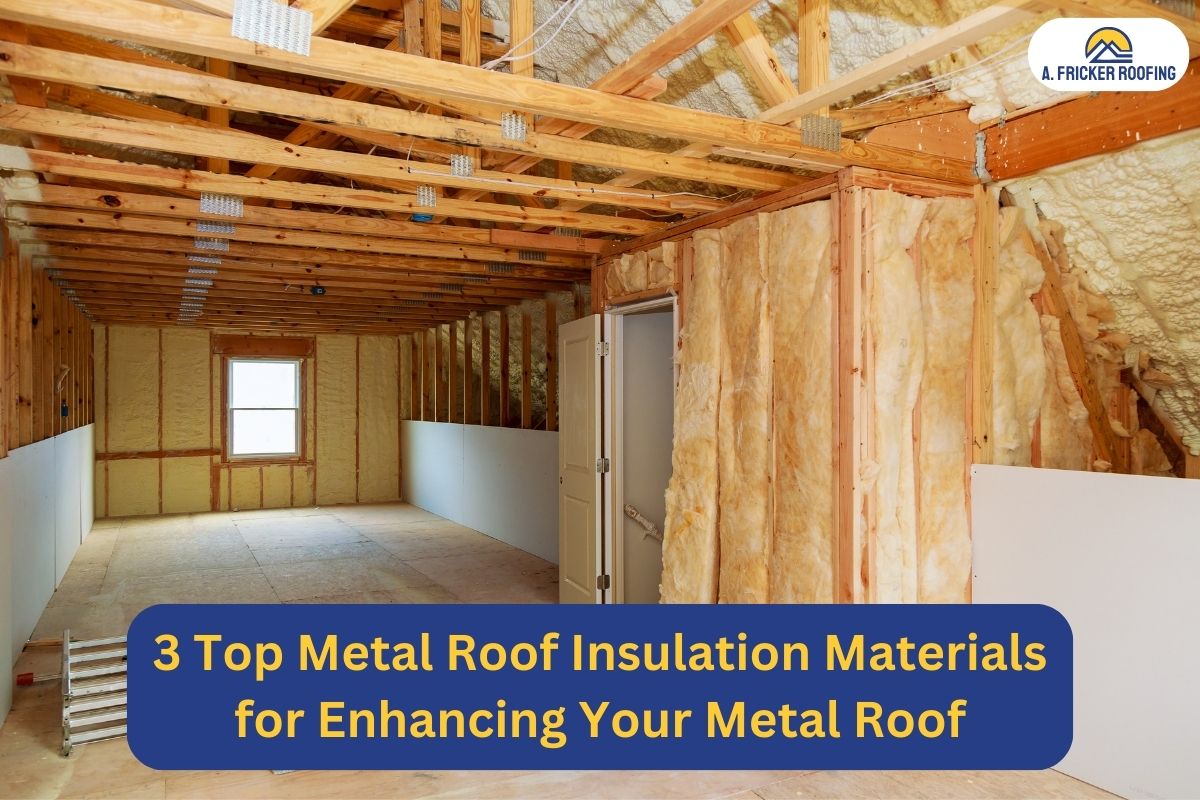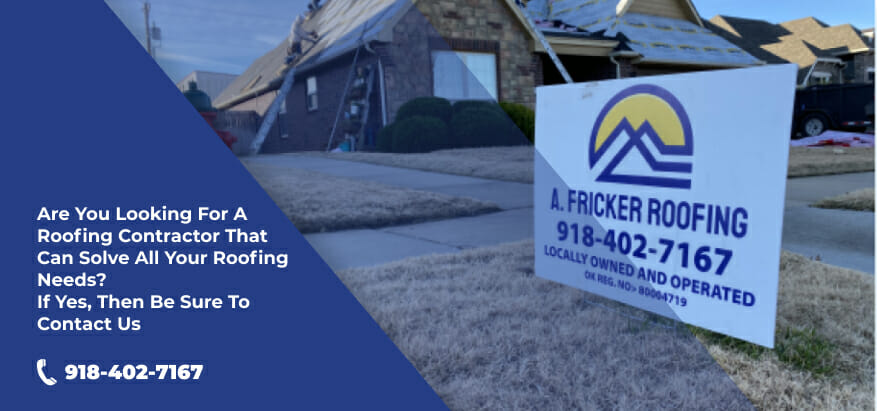While metal roofs are durable, long lasting, and energy-efficient, the absence of insulation can reduce the overall effectiveness of your roofing system. From the hammering sound of rain to increased energy consumption, metal roof insulation plays a major role in your everyday comfort. If you are installing a metal roof on your home or commercial building, you must install metal roof insulation at the same time.
This blog post introduces you to the top three metal roof insulation materials to help you choose the right one for your property. Plus, we will explain the importance of metal roof insulation. Read this blog through the end for everything you need to know.
Top 3 Types of Metal Roof Insulation
While there are many different kinds of insulation, these three work the best with metal roofing systems.
1. Fiberglass Batt Insulation
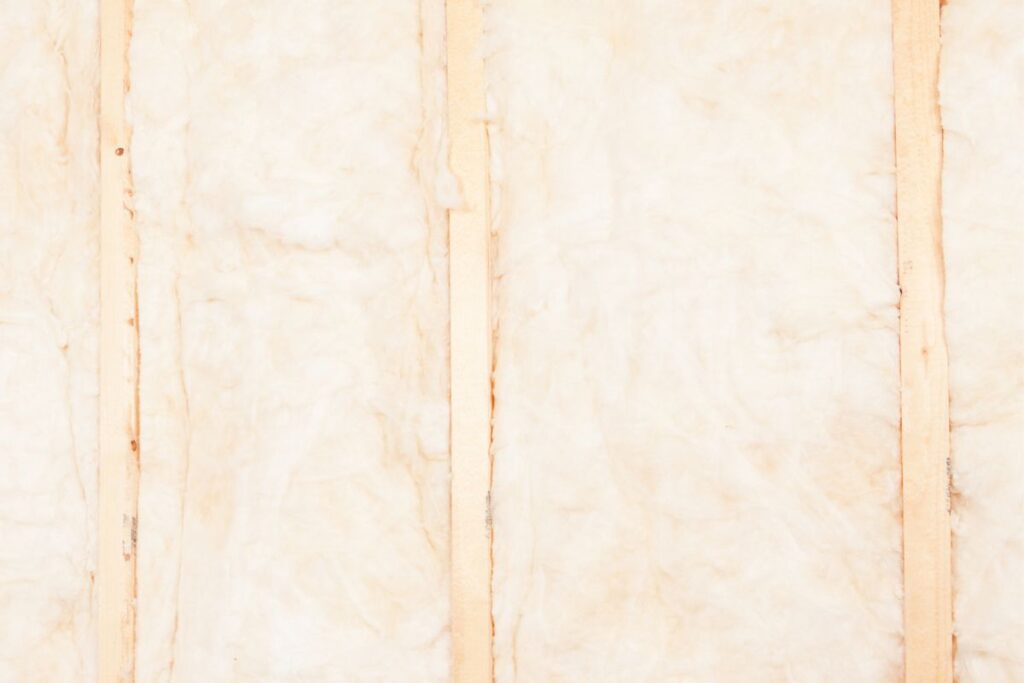
Fiberglass batt insulation is a traditional and widely used option for metal roofs. Composed of fine glass fibers, it comes in pre-cut panels or rolls and is easy to install. It comes in a varied range of R-values. Simply put, the R-value is a measure of how well a material resists heat transfer. A higher R-value means better insulation. The popularity of fiberglass batt insulation stems from several key advantages.
Advantages
Affordability: Fiberglass batts are cost effective, making them a budget friendly choice.
Ease of Installation: The pre-cut panels or rolls are easy to handle and install, making it a preferred choice for DIY enthusiasts.
Thermal Performance: Fiberglass insulation provides excellent thermal resistance, helping regulate indoor temperatures effectively.
2. Rigid Foam Board Insulation
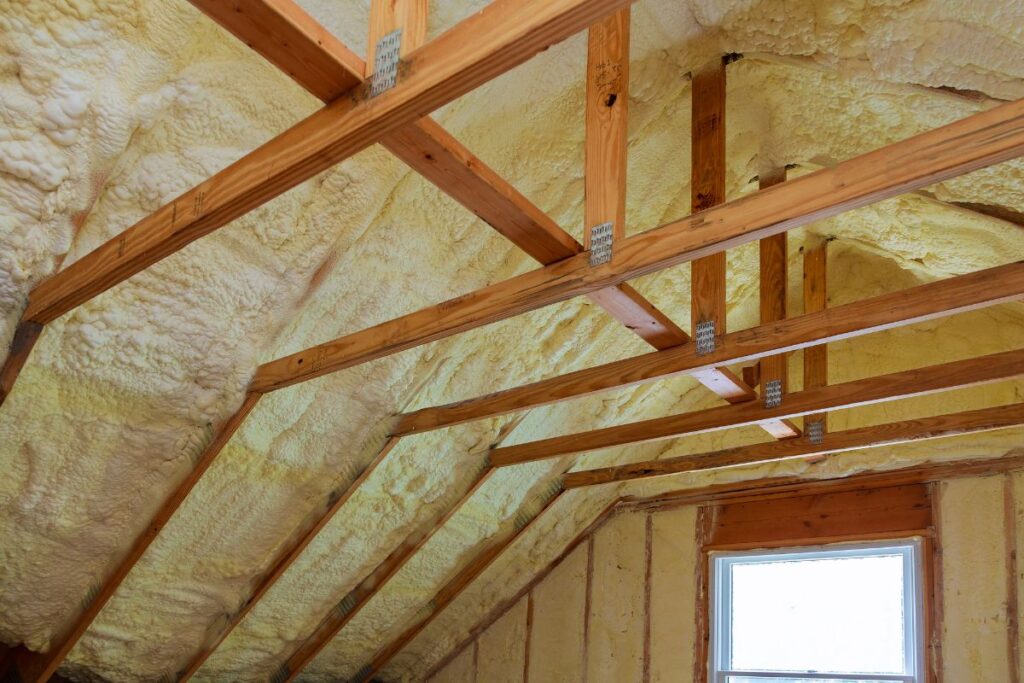
Rigid foam board insulation, also known as foam board, is a versatile option that comes in various materials such as expanded polystyrene (EPS), extruded polystyrene (XPS), and polyisocyanurate. However, it is costly compared to fiberglass batts, mainly because of its high R-value. Its rigidity and durability make it suitable for metal roof applications. Moreover, rigid foam insulation is resistant to moisture, which is essential for the longevity of metal roofing systems.
Advantages
High R-Value: Rigid foam boards typically have a high R-value, indicating superior thermal resistance and insulation performance.
Moisture Resistance: Unlike some other insulation materials, rigid foam boards are resistant to moisture, preventing issues like mold and rot.
Restricted Airflow: The rigid nature of these boards prevents air transfer between the outdoors and inside your home, keeping temperatures comfortable.
3. Spray Foam Insulation
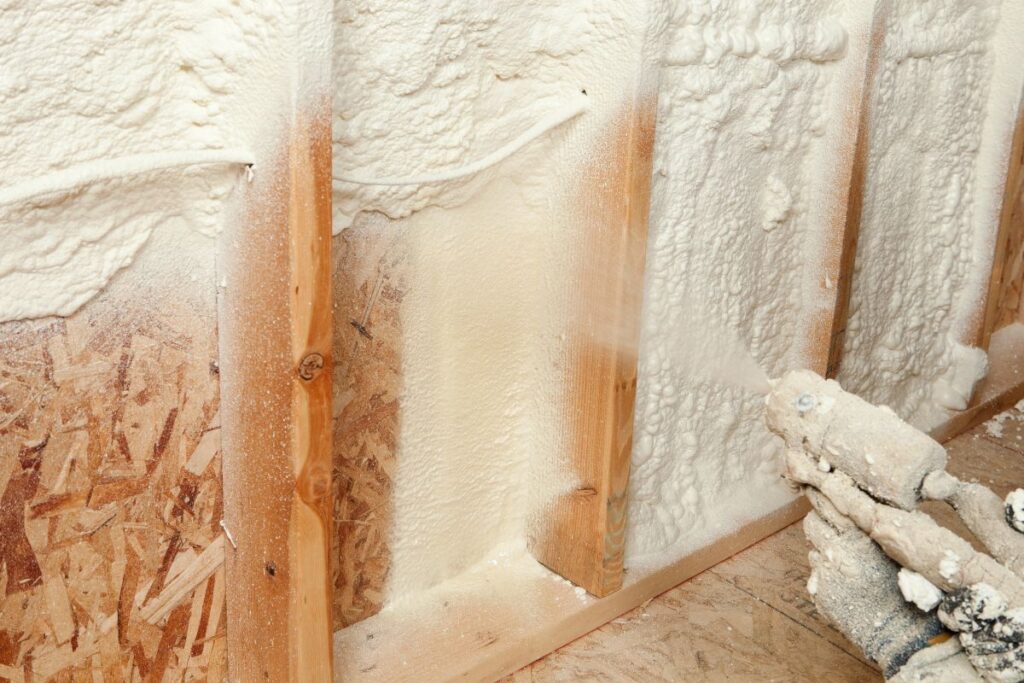
Spray foam insulation is a modern and efficient option for metal roofs. It is considered one of the most effective and costly insulation methods in the market, mainly because of its R-value. Its installation method is completely different from the above two. It involves spraying the insulating substance onto the metal roofing panels, which, on the application, expands and seals any gaps and holes. Spray foam insulation creates a seamless and airtight insulation layer.
There are two types of spray foam insulation: closed cell and open cell. Closed cell spray foam is harder to install but performs better than open cell spray foam insulation.
Advantages
Seamless Coverage: Spray foam insulation conforms to irregular surfaces, providing a seamless, airtight barrier against heat transfer.
Versatility: It can be applied in various thicknesses, allowing for customization based on specific insulation needs.
Sound Insulation: Apart from thermal benefits, spray foam also acts as an effective sound insulator, reducing noise from external elements.
The Need For Metal Roof Insulation
Not installing insulation can cause many metal roof problems that will require specific attention and repairs.
1. Temperature Regulation
While metal roofs reflect most UV rays, they still absorb heat and transmit it beneath the surface, making the home interior hotter and drier. Without insulation, this can increase the temperature in the summer and decrease in the winter, making living spaces uncomfortable. Insulation acts as a thermal barrier, regulating the transfer of heat and helping to maintain a consistent and comfortable indoor temperature year-round.
2. Energy Efficiency
Insulating a metal roof contributes significantly to energy efficiency. Without insulation, buildings with metal roofs may experience increased energy consumption, which will cost you more. Proper insulation reduces the need for constant HVAC usage, leading to lower energy consumption and decreased utility bills over time.
3. Condensation Control
Like any other material, metal roofs are prone to condensation, especially in humid climates. When warm, moist air comes into contact with the cooler metal surface, condensation can occur. Insulation acts as a barrier and prevents the warm air from reaching the metal and reduces the risk of condensation. This is crucial to prevent structural damage, mold growth, and to preserve the integrity of the metal roofing system.
4. Noise Reduction
Rain, hail, and other external elements can create considerable noise on a metal roof. This is where insulation comes in, as it absorbs these sounds and provides a quieter indoor environment. This is particularly important in residential buildings, as it ensures a peaceful living space even during adverse weather conditions.
5. Longevity of Roofing System
Proper insulation can contribute to the longevity of a metal roofing system. The metal expands and contracts with temperature fluctuations, and insulation helps to mitigate the stress on the roofing system. By reducing thermal cycling and minimizing the impact of extreme temperatures, insulation can extend the lifespan of the metal roof, saving on maintenance and replacement costs.
Hire Roofing Experts In Claremore, OK, Your Metal Roofing Needs
If you are considering installing a metal roof in your home or commercial building, don’t forget to add insulation. Insulation helps reduce energy costs, absorbs excess sound, and controls condensation, all of which helps increase the lifespan of your metal roof. However, it’s crucial to work with an experienced metal roofing contractor in Tulsa, OK, to ensure the durability of your roofing system. Contact A. Fricker Roofing and Waterproofing today at (918) 402-7167 and consult a professional roofing expert.
